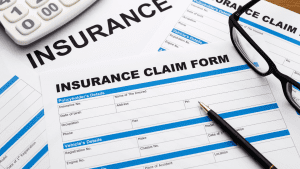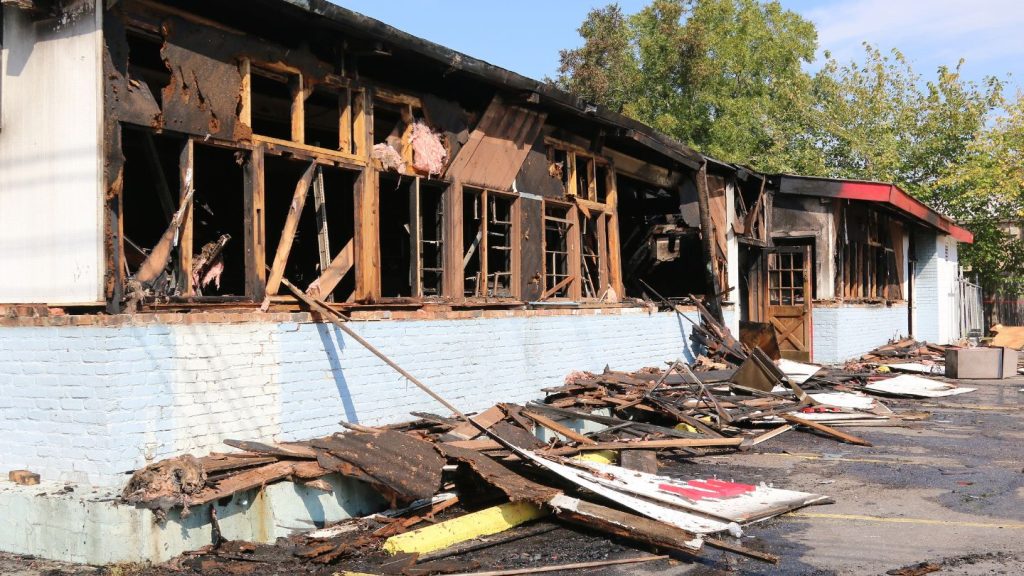When disaster strikes a commercial property, the aftermath can be overwhelming. From fire damage to flooding, the scale of destruction can be vast, leading to significant financial implications. At the heart of this challenge is the daunting task of filing a commercial large loss claim. With high stakes and intricate details, navigating this process can be intimidating. But fear not! With expert advice and a strategic approach, you can handle your claim with confidence and secure the best possible settlement. Here are some pro tips to guide you.
Understand the Basics of Commercial Large Loss Claims
A commercial large loss claim is a formal request made by a business to its insurance provider, seeking compensation for significant damages that have led to a considerable financial setback. But what exactly qualifies as a “large loss”? And how does it differ from regular claims?
A commercial large loss claim arises when a business suffers significant damage, leading to substantial financial loss. This isn’t just about a minor mishap or a small operational hiccup; it’s about events that have the potential to disrupt the very essence of the business, perhaps even threatening its future viability. Such incidents often necessitate extensive repairs, replacements, or even complete overhauls of business operations.
The reasons behind such claims can be vast and varied. Natural disasters, such as earthquakes, floods, hurricanes, and tornadoes, can wreak havoc on commercial properties, leading to structural damages, loss of inventory, and prolonged business interruptions. Fires, whether due to electrical issues, human error, or even deliberate acts of arson, can rapidly consume a property, leading to both tangible property loss and potential revenue loss due to business downtime. Large-scale theft or vandalism can also lead to significant financial implications, especially if valuable equipment or inventory is involved.
Beyond the immediate physical damage, the financial repercussions of such events can be profound. Businesses might face lost revenue due to operational downtime, hefty repair or replacement costs, and potential legal liabilities if third parties were affected. For instance, if a flood in a commercial building damages neighboring properties or injures someone, the business might be held liable.
Insurance policies for businesses are designed to provide a safety net in these dire situations. By making a claim, businesses seek to leverage their policy to cover the costs of repairs, replacements, and other associated expenses. However, the process isn’t always straightforward. The specifics of the claim, the terms of the policy, and the valuation of the loss all play a role in determining the final settlement.
-
Immediate Steps to Take After the Incident
In the aftermath of a significant incident that affects a commercial property, the initial shock and confusion can be overwhelming. However, it’s imperative to act swiftly and decisively to mitigate further damage and set the stage for a successful insurance claim. Here’s a more in-depth look at the immediate steps businesses should take following such an incident.
Secure the Property:
The safety and well-being of all individuals on the premises should be the top priority. Before diving into the logistics of the situation, ensure that all employees, stakeholders, and any other individuals present are safe and accounted for. Once immediate safety concerns are addressed, attention should shift to the property itself. Depending on the nature of the incident, this could involve a variety of actions:
- Boarding up broken windows or doors to prevent unauthorized access and protect against weather elements.
- Draining any standing water to prevent mold growth and further water damage.
- Relocating inventory, especially if it’s at risk of further damage or theft. This might mean moving items to a safer part of the building or even to an off-site storage facility.
Document Everything:
In the digital age, documenting damage has become more straightforward than ever. Use smartphones or cameras to take comprehensive photos and videos of all affected areas. This visual evidence will be invaluable when it comes time to demonstrate the extent of the damage to the insurance company. But don’t stop at visuals:
- Make a detailed commercial large loss claim list, cataloging every damaged item. This should include descriptions, purchase dates, and estimated values. Receipts, if available, can further substantiate these claims.
- Note any structural damages or issues that might not be immediately visible in photos, such as electrical problems or plumbing concerns.
Notify Your Insurance Provider:
Time is of the essence when it comes to insurance claims. The sooner the insurance company is made aware of the incident, the sooner they can begin their assessment and processing. Early notification:
- Demonstrates proactiveness and responsibility on the part of the business.
- Allows the insurance company to dispatch adjusters or investigators promptly, which can expedite the claim process.
- Ensures that any specific instructions or requirements from the insurance provider are communicated and followed, reducing the risk of claim disputes later on.
-
Assembling Your Commercial Large Loss Claim Team
In the wake of a significant incident that impacts a commercial property, the process of filing and navigating a large loss claim can be intricate and daunting. Given the complexities involved and the high stakes, it’s not a journey you should embark on alone. Assembling a dedicated team of professionals can make all the difference in ensuring a smooth process and optimizing the claim settlement. Let’s delve deeper into the key players you should consider bringing on board and their roles in the process.
Public Adjusters:
Public adjusters play a pivotal role in the claims process. Unlike the adjusters sent by insurance companies who work in the insurer’s best interest, public adjusters are advocates for you, the policyholder. Their expertise lies in:
- Evaluating and documenting the full extent of the damage to ensure nothing is overlooked.
- Interpreting the nuances of the insurance policy to determine what is covered and to what extent.
- Negotiating with the insurance company on your behalf, aiming to secure the maximum possible settlement. Their familiarity with the claims process and industry jargon can be invaluable in these negotiations.
Restoration Experts:
The aftermath of a significant incident can leave the commercial property in disarray. This is where restoration experts, like United Water Restoration Group, come into play. Their role encompasses:
- Conducting a thorough assessment of the damage can further support the claim documentation.
- Initiating immediate mitigation measures to prevent further damage, such as water extraction or mold prevention.
- Overseeing the complete restoration process, ensuring the property is returned to its pre-loss condition or even better.
Legal Counsel:
While not every claim will necessitate legal intervention, in particularly complex or contentious cases, having a lawyer on your side can be a game-changer. Legal counsel can:
- Provide guidance on the legal aspects of the claim, ensuring all actions taken are in compliance with relevant laws and regulations.
- Step in if there are disputes with the insurance company that cannot be resolved through standard negotiations.
- Offer advice on potential liabilities, especially if the incident affected third parties or neighboring properties.
- In essence, navigating a commercial large loss claim is akin to orchestrating a symphony, with each expert playing a crucial part in the ensemble. By assembling a robust team, businesses can ensure that every aspect of the claim is handled with precision and expertise, optimizing the chances of a favorable outcome. This proactive approach not only streamlines the claims process but also positions the business for a faster and more efficient recovery.
-
Expert Tips for Navigating the Claim Process
Embarking on the journey of navigating a commercial large loss claim can be a daunting endeavor. The intricacies involved, coupled with the high stakes, can make the process feel overwhelming. However, with the right approach and expert guidance, you can steer through the maze with confidence and efficiency. Here’s a deeper dive into some invaluable tips that can make a significant difference in your claim journey.
Stay Organized:
Organization is the backbone of a successful claim process. Given the myriad of documents, forms, receipts, and correspondence that will flow in and out during the claim, having a systematic approach is crucial. Here’s why and how:
- A centralized system, whether it’s a physical folder or a digital repository, ensures that you can quickly access any document when needed. This is especially handy during discussions with your insurance provider or any other stakeholder.
- Regularly updating and checking this repository can help you keep track of deadlines, follow-ups, and any pending tasks.
- In the event of disputes or clarifications, having a well-organized record can be your best defense, allowing you to present evidence or counter-arguments effectively.
Understand Your Policy:
Your insurance policy isn’t just a piece of paper; it’s the contract that dictates the terms of your claim. Delving into its details is paramount:
- Familiarize yourself with the coverage limits, deductibles, and exclusions. This knowledge will set clear expectations and prevent potential disappointments.
- If certain terminologies or clauses seem ambiguous, seek clarification. Whether it’s from your insurance agent, public adjuster, or legal counsel, getting a clear understanding is crucial.
- Being well-versed with your policy also empowers you during negotiations, ensuring you claim everything you’re entitled to.
Be Patient:
The adage “patience is a virtue” holds especially true in the context of commercial large loss claims. Here’s why:
- Given the scale and complexity of such claims, the evaluation, processing, and settlement can be a lengthy affair. Rushing through stages can lead to oversights or mistakes.
- Insurance companies, with their rigorous checks and balances, might take time to assess and approve claims. Understand that this meticulousness can work in your favor, ensuring a comprehensive evaluation.
- Persistence, coupled with patience, is key. Regular follow-ups, while maintaining a calm demeanor, can expedite the process and yield better results.
-
Common Mistakes to Avoid
The journey of navigating a commercial large loss claim is fraught with potential pitfalls. Even with the best intentions and efforts, businesses can inadvertently make mistakes that can jeopardize their claim or diminish their settlement. Being forewarned is forearmed. By understanding these common missteps, you can sidestep them and ensure a smoother claim process. Let’s delve deeper into some of these mistakes and how to avoid them.
Not Documenting Everything:
Documentation serves as the bedrock of your claim. Every piece of evidence, every shred of paper, can play a pivotal role in substantiating your claim and maximizing your settlement. Here’s why this is so crucial:
- In the aftermath of an incident, the scene can change rapidly. Immediate documentation captures the situation in its rawest form, providing irrefutable evidence of the damage.
- Comprehensive documentation can also help in identifying and claiming hidden damages or losses that might become apparent only later.
- Overlooking or missing out on documenting certain aspects can lead to disputes or reduced settlements. It’s not just about the obvious damages; even ancillary costs, like temporary storage or relocation expenses, should be documented.
Accepting the First Offer:
The initial offer from the insurance company might seem tempting, especially when businesses are eager to recover and move forward. However, this can be a costly mistake.
Insurance companies, like all businesses, have their bottom line in mind. The first offer might be a lowball figure, banking on the business’s urgency or lack of expertise in the claim process.
Accepting the first offer without scrutiny or negotiation can leave significant money on the table. This can be especially detrimental given the scale of commercial large loss claims.
Engaging with experts, like public adjusters, can provide a clearer picture of what a fair settlement looks like. Their expertise can guide businesses in negotiations, ensuring they get what they rightfully deserve.
Not Reviewing the Final Settlement:
Before signing off, ensure all damages are covered in the settlement. If you agree to a settlement that does not cover the entirety of the restoration, the rest of the funds will be expected to come from you.
-
Commercial Large Loss Claim Tips for Maximizing Your Settlement
Navigating a commercial large loss claim is intricate, but with strategic steps, you can optimize your settlement. First, consider hiring professionals. Their expertise can unearth overlooked damages, ensuring you claim every penny you deserve. Public adjusters and restoration experts can be invaluable allies in this journey. Next, maintain meticulous records, not just of the damages but also of your business operations. Demonstrating a loss of income due to the incident can bolster your claim, leading to a more substantial settlement. Lastly, communication is key. Regularly liaise with your insurer, providing updates and seeking clarifications. This proactive approach can streamline the process, ensuring a smoother and more favorable resolution.
Choose United Water Restoration Group for Expert Assistance
In the unsettling aftermath of a disaster, having a reliable and experienced ally can make all the difference. United Water Restoration Group stands as a beacon of expertise and trustworthiness in such challenging times. Our seasoned team possesses a deep understanding of damage assessment and restoration, ensuring that every facet of your claim is robustly supported. Beyond just the technicalities, we pride ourselves on our commitment to our clients. We understand the emotional and financial toll such incidents can take, and we’re here to shoulder that burden with you.
Instead of wading through the complexities of a commercial large loss claim on your own, allow us to guide you, step by step, towards a favorable resolution. With United Water Restoration Group by your side, you’re not just getting a service provider; you’re gaining a partner dedicated to helping you achieve the best possible outcome. Contact us today, and together, let’s chart the path to a comprehensive and maximized settlement.





